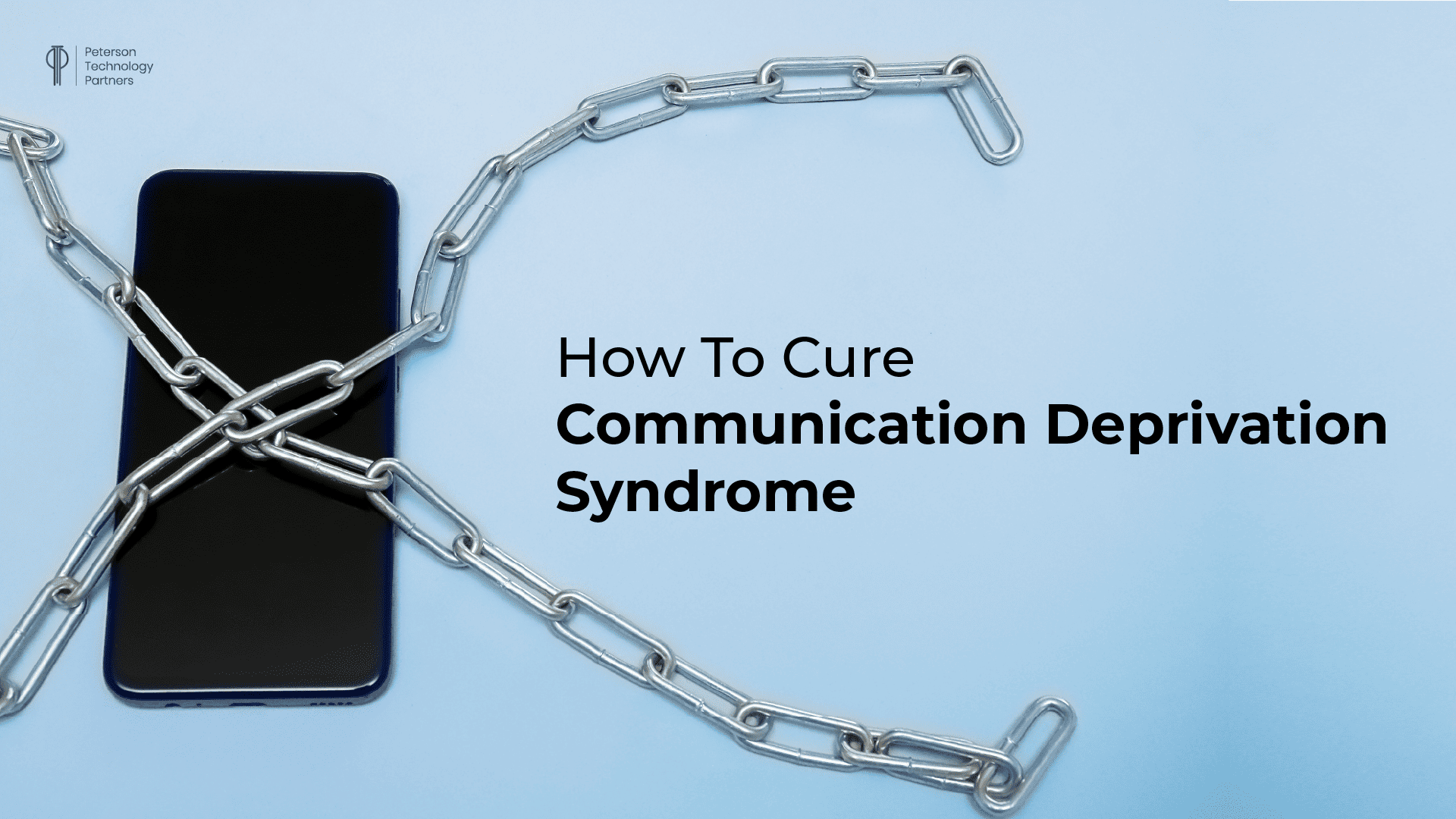Communication Deprivation – Patient Zero
The author, entrepreneur, and motivational speaker Jim Rohn once said “What’s easy to do is easier not to do.” Nowhere is this more true than in the fragile realm of employer/employee communication.
Difficult conversations are a part of the business regardless of what the business is. The boss has to tell the employee when their job performance is sub-par. The worker has to tell the executive why the project’s behind the deadline. No one enjoys these conversations but, “the truth hurts” as they say, but in order for any company to run effiently, they have to happen.
The key word, there, is “efficiently”.
Technically, that communication could just be avoided altogether. No tough conversations. No hard feelings. No immediate risk. By shying away from these situations we protect ourselves from the fear, anger, and other negative emotions that could arise.
But only temporarily.
Communication Deprivation – The Disease
While we may have solved the “I could feel bad about this” issue we’ve done absolutely nothing to solve the root problem that caused it. “Out of sight, out of mind” doesn’t mean out of existence… the question, problem, or opportunity we failed to address will be there waiting until time is no longer on our side. By avoiding conversation, we put a band-aid on our emotional cut allowing the actual injury to get infected.
Communication Deprivation – The Symptoms
Just as with any other injury, disease, or disorder, the longer the problem is ignored (and communication about it is deprived) the worse it becomes. As the time passes so do the opportunities to resolve the concern. While they may not be perfect remedies, they could be the best that will become available.
Related: How and Why IT Executives Must Upskill Themselves
As we’re ignoring the problem, futilely hoping it just goes away, we’re also missing the possible solutions. Whether we like it or not, our “out of sight, out of mind” mentality isn’t restricted to just the problem. It spills out and infects everything around it.
That includes what may turn out to be remedies had we only been looking for them.
So what is the actual cure for Communication Deprivation?
Simple. It’s communication.
The Communication Cure
Naval Ravikant is known throughout Silicon Valley as the “Angel Philosopher”. The highly successful co-founder of AngelList has started and/or invested in over 100 companies including Twitter and Uber. He now shares his entrepreneurial philosophies across the digital landscape through social media and podcasts.
One of Naval’s many pieces of insightful advice is to “Play long-term games with long-term people”. The reason this is critical, according to Naval, is that key aspects of business relationships, such as trust and integrity, compound like interest. The relationship grows exponentially with experience but only when those experiences result in trust.
And what’s the only way to build trust? Communication.
Open, honest, timely communication is the cure for more relationship problems than we would like to admit. This communication, though sometimes painful, is the only way to solve both immediate concerns and to grow trust, respect, and understanding… the pillars every relationship.
Communication After-Care
The initial fear of addressing a touchy subject, especially in a business setting, can feel immense. It’s extremely tempting to ignore the issue and hope that “it just goes away”.In truth, ignoring problems never solves them.
If anything, the concern only grows bigger and stronger with time.
Additionally, when we avoid communication, we overlook possible solutions. When our focus is on avoiding the illness, we indirectly avoid the cure as well. Once we conquer communication anxiety at work, everything becomes clear again.
The ideal plan of action is to simply face the challenge head on and talk about it. However awkward, uncomfortable, or painful it may seem, it’s in everyone’s best interest to address whatever needs to be addressed.
If you are considering a new job or a career change, review our current job listings here, or contact us directly via email: hello@ptechpartners.com.
About the Company:
Peterson Technology Partners (PTP) has partnered with some of the biggest Fortune brands to offer excellence of service and best-in-class team building for the last 25 years.
PTP’s diverse and global team of recruiting, consulting, and project development experts specialize in a variety of IT competencies which include:
- Cybersecurity
- DevOps
- Cloud Computing
- Data Science
- AI/ML
- Salesforce Optimization
- VR/AR
Peterson Technology Partners is an equal opportunities employer. As an industry leader in IT consulting and recruitment, specializing in diversity hiring, we aim to help our clients build equitable workplaces.





